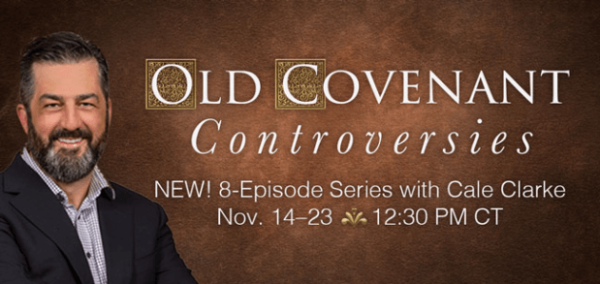Cale concluded his The Faith Explained series Old Covenant Controversies today with a final segment on the theology of marital love, sexuality, and the Old Testament origins of this blueprint.
Cale began with Pope St. John Paul II’s Theology of the Body, in which he conducted a magisterial Bible study on Genesis and examined the three original experiences of men and women. The first is the solitude of man when Adam was without a companion. The second is original unity when God created Eve and a bond between man and woman. And the third is seen in Genesis 2:25:
“The man and his wife were both naked, yet they felt no shame.”
They felt no shame because they were not objects for the utilitarian purposes of one another. They were not using love to get sex nor using sex to get love. Their union was one formed out of complete selflessness and a desire to give themselves entirely to the other.
The reason that stage of human experience is so important is that it expresses the necessity for sexual desire in a marriage as a reflection of love in the image of God. Pope John Paul II called it the “natural meaning of the body.”
When two people get married in the Church, they make vows to their spouse that they will love them “freely, totally, faithfully, and fruitfully.” That is in direct imitation of how Christ loves His Church.
Freely: “No one takes it from me, but I lay it down on my own. I have power to lay it down, and power to take it up again.” (John 10:18)
Totally: “This is my body, which will be given for you; do this in memory of me.” (Luke 22:19)
Faithfully: “And behold, I am with you always, until the end of the age.” (Matthew 28:20)
Fruitfully: “A thief comes only to steal and slaughter and destroy; I came so that they might have life and have it more abundantly.” (John 10:10)
But after sin, after Adam and Eve’s consumption of the forbidden fruit, things change. They are no longer shameless in their nakedness. They are no longer comfortable in their vulnerability and openness in every respect. They sew leaves together to use as clothes and they even attempt to hide from God. They are full of embarrassment and guilt. And when God asks them where they are, why they are clothed, and if they have sinned, they turn on one another. Adam blames Eve for giving him the fruit. Eve blames the snake for tricking her.
While God could have eliminated them from existence for their disobedience, He shows them mercy. He even gives them animal skins to clothe themselves. Whereas lust was never a possibility before, they must temper their sexual desires. The devil is now capable of using sexual intimacy as a tool to cause sin.
We are blessed with the ability to engage wholly in sexual intimacy the way God intended, but we must be intentional about it. Is this act going to bring me closer to God? If I follow through, am I loving my spouse freely, totally, faithfully, and fruitfully? Adultery is a failure to love faithfully. Contraception is a failure to love totally and fruitfully. And sexual acts of coercion are the imposed failure to love freely.
If we use those four guidelines of God’s blueprint to intimate love, we can live an enjoyable and fulfilling life with our loved ones.
Listen to this full episode of Old Covenant Controversies above or on The Faith Explained show page! And be sure to catch the rest of the episodes live on Relevant Radio at 12:30pm CT from November 14 – November 23!

